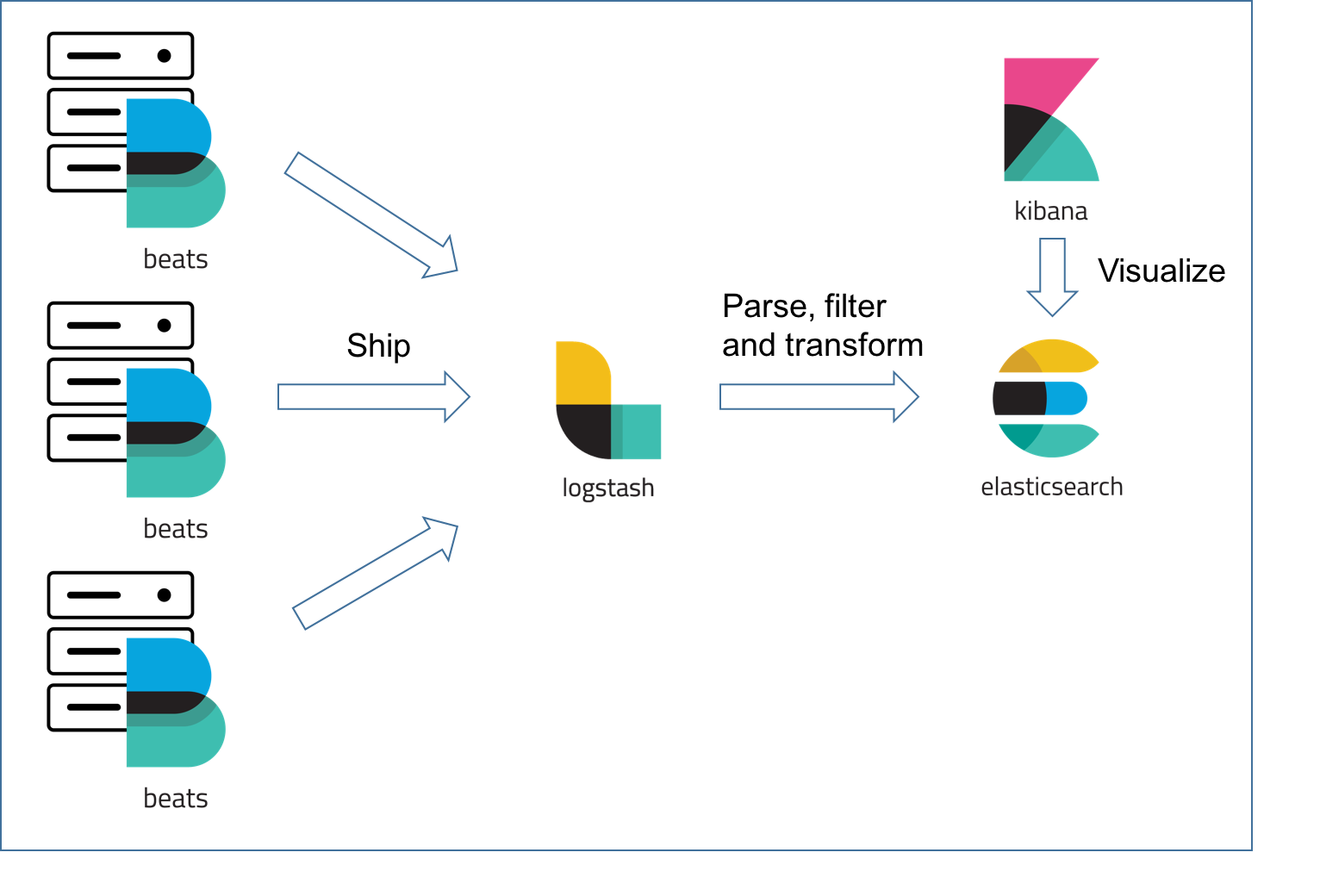-
Elasticsearch, is a highly scalable open-source full-text search and analytics engine.
-
Logstash, is a plugin-based data collection and processing engine.
-
Kibana, open source analytics and visualization platform designed to work with Elasticsearch
-
Beats, are lightweight data shippers that you install as agents on your servers to send specific types of operational data to Elasticsearch.
-
Docker, Container Technology for Easier and Uniform application development and deployment
Elasticsearch is a highly scalable open-source full-text search and analytics engine. It allows you to store, search, and analyze big volumes of data quickly and in near real time. It is generally used as the underlying engine/technology that powers applications that have complex search features and requirements.
Logstash is a plugin-based data collection and processing engine. It comes with a wide range of plugins that makes it possible to easily configre it to collect, process and forward data in many different architectures. Processing is organized into one or more pipelines.
Kibana is an open source analytics and visualization platform designed to work with Elasticsearch. You use Kibana to search, view, and interact with data stored in Elasticsearch indices. You can easily perform advanced data analysis and visualize your data in a variety of charts, tables, and maps.
Beats are lightweight data shippers that you install as agents on your servers to send specific types of operational data to Elasticsearch. Beats have a small footprint and use fewer system resources than Logstash.
Docker is an open platform for developing, shipping, and running applications. Docker enables you to separate your applications from your infrastructure so you can deliver software quickly. With Docker, you can manage your infrastructure in the same ways you manage your applications. By taking advantage of Docker’s methodologies for shipping, testing, and deploying code quickly, you can significantly reduce the delay between writing code and running it in production.
